
How to turn an idea into a successful business: stories from the Business Incubator Singerei
The working atmosphere in the Business Incubator (BI) Sîngerei is felt right at the entrance. Behind every door is a fully functioning business with employees, modern equipment and an entrepreneur developing his or her idea.
During its five years of activity, the EU-supported BI Sîngerei has assisted with and contributed to the development of the opening of 72 companies.
Today, it hosts about 40 companies, offering a wide range of services, from dental imaging, to childcare and tailoring.
To benefit from the incubator’s help, entrepreneurs need to have a viable business idea. The incubator’s experts will then help the business to succeed in a favourable environment.
“We provide beginner entrepreneurs with consulting services in business start-up and development, legal advice, accounting. We also provide cheaper rental space,” explains Ludmila Prociuc, manager of the BI Sîngerei.
People who come to the incubator have the chance to attend various seminars and introductive courses where they learn how to start a business, develop a business plan, communicate with customers, or expand into foreign markets.
The BI has two departments: on-site production and remote production with the support of the office in the incubator.
Building a bakery business
An example of an entrepreneur who has her production unit right inside the incubator is Svetlana Garbuz, who, after working for five years in a bakery, decided to open her own business.
“We make bread, pastries and biscuits for schools and kindergartens,” says Svetlana. Employees of the bakery also work during the night to deliver fresh products first thing in the morning. Svetlana says she wants to “conquer the Sîngerei market”, and then expand into other areas of the country.
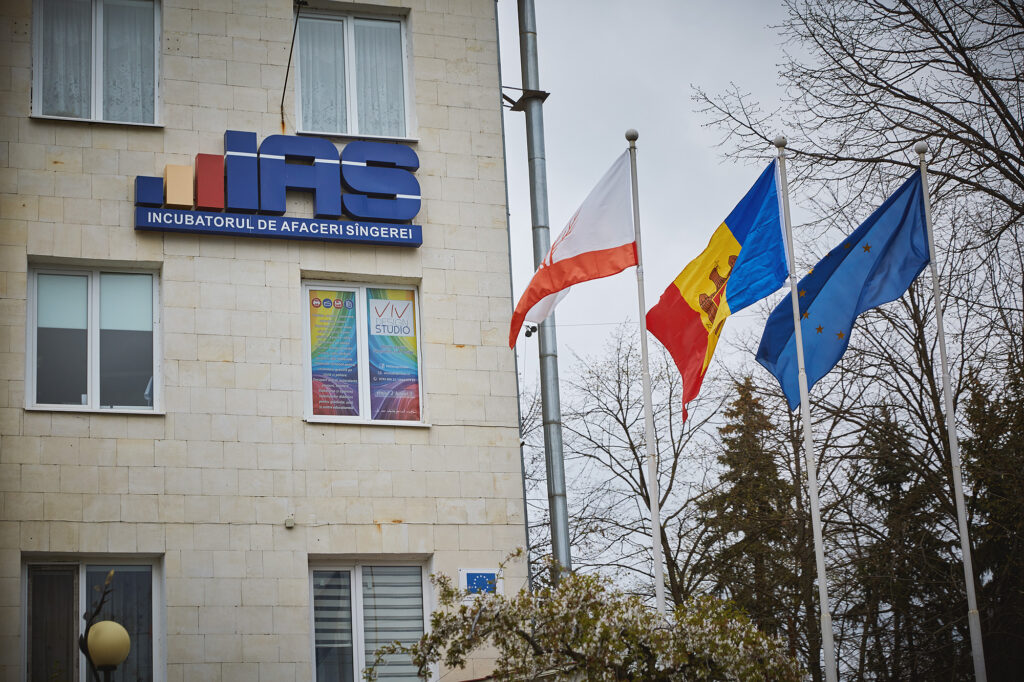 Building of business incubator Sîngerei
Building of business incubator Sîngerei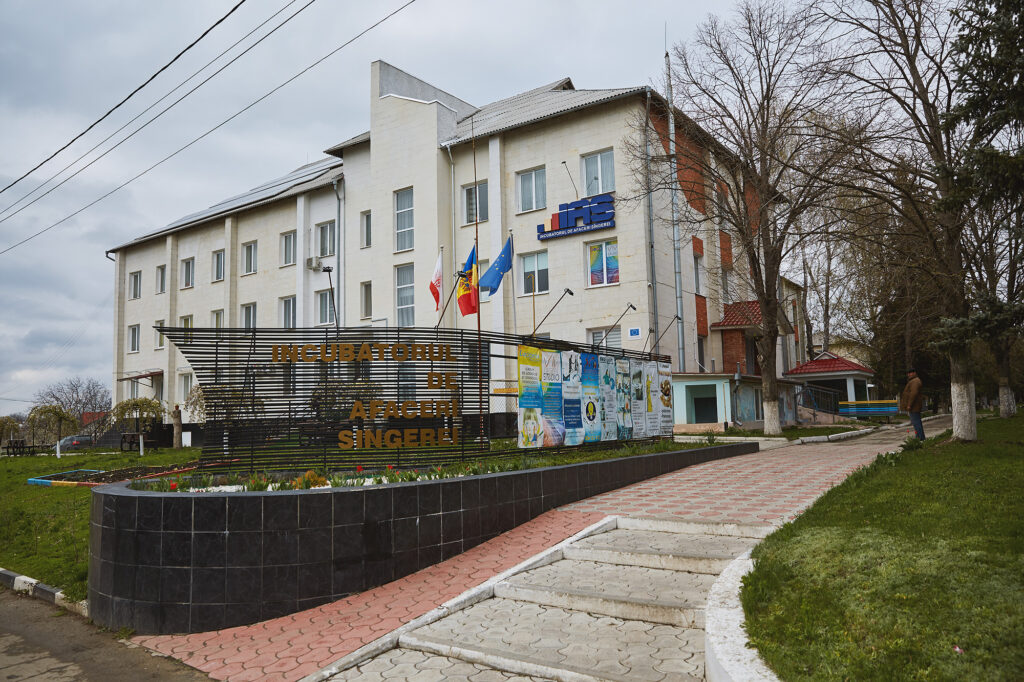 Building of business incubator Sîngerei
Building of business incubator Sîngerei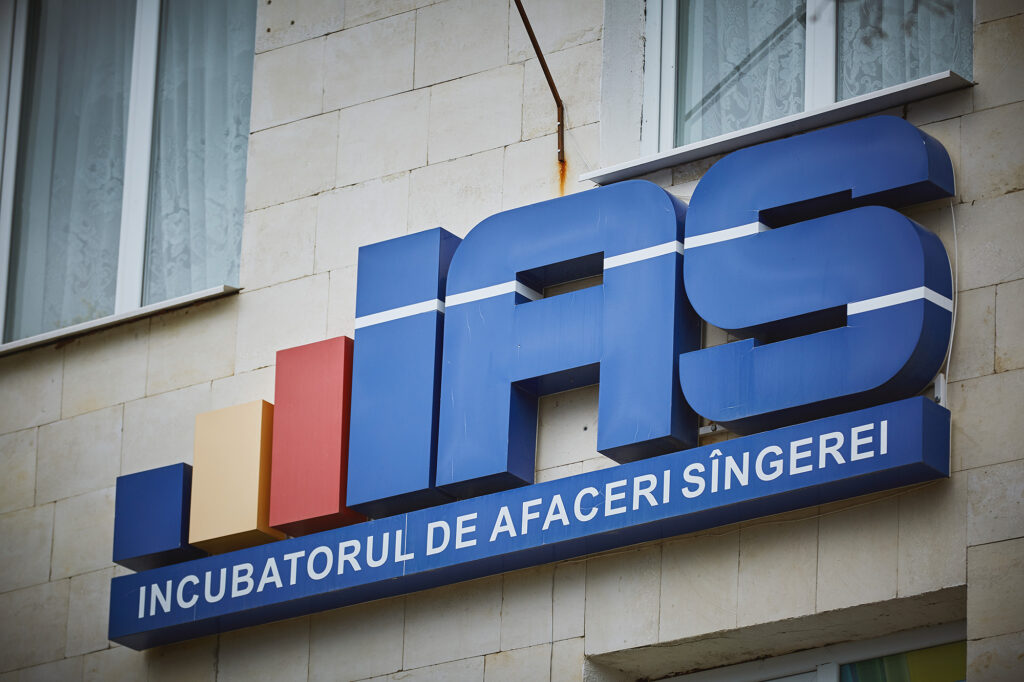 BI Sîngerei
BI Sîngerei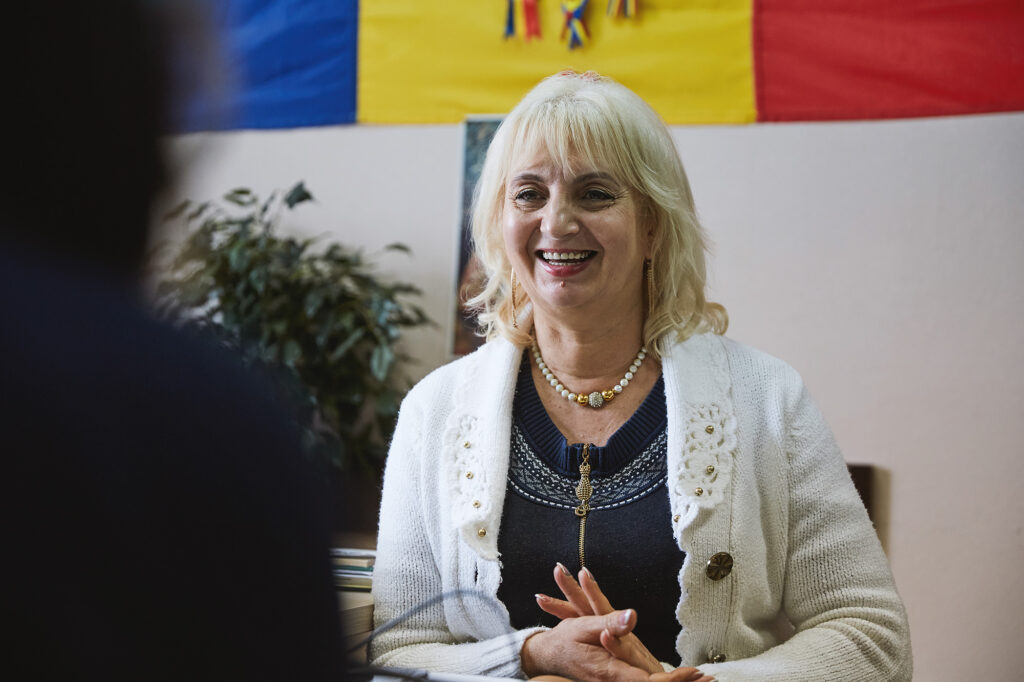 Ludmila Prociuc, manager of the BI Sîngerei
Ludmila Prociuc, manager of the BI Sîngerei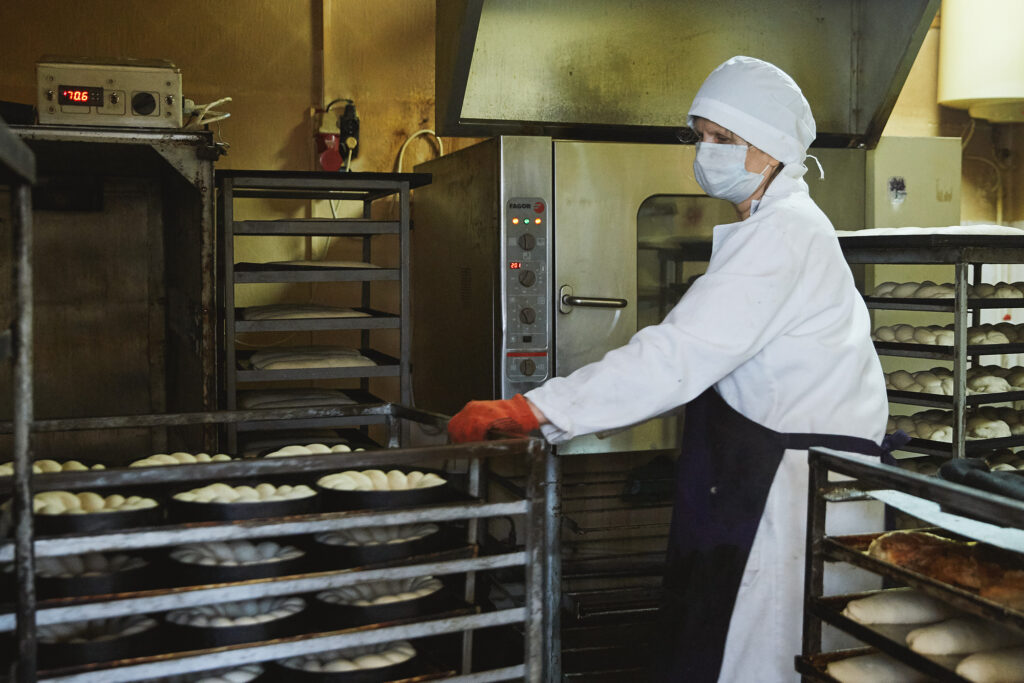 Inside business incubator Sîngerei
Inside business incubator Sîngerei Svetlana Garbuz with a colleague at BI Sîngerei
Svetlana Garbuz with a colleague at BI Sîngerei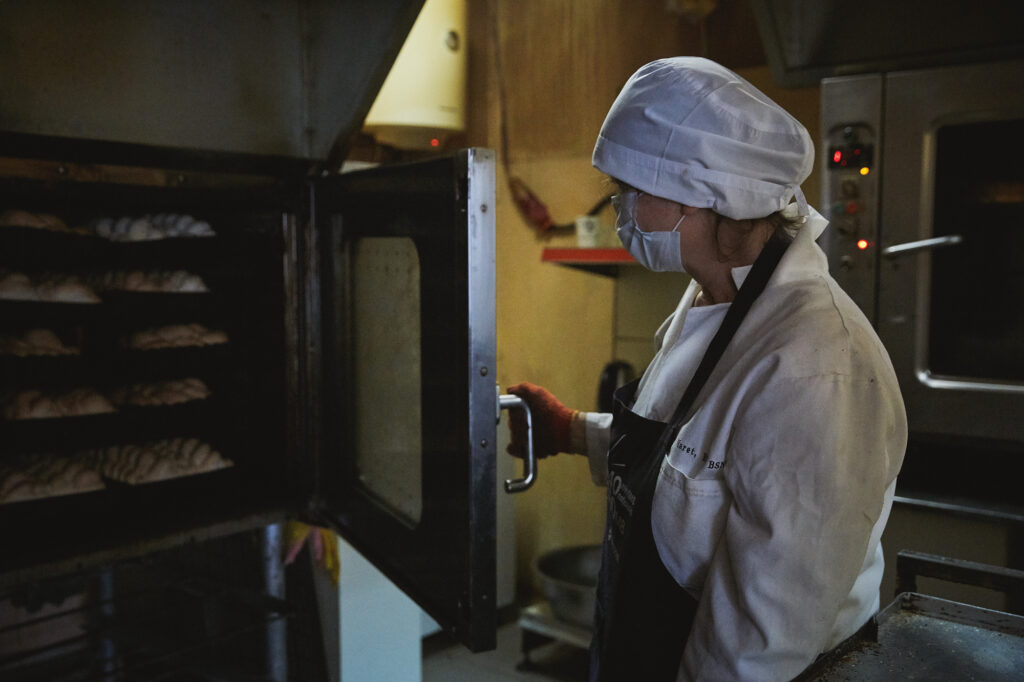 Employees of bakery at BI Sîngerei work night shifts to supply fresh baker products in the morning
Employees of bakery at BI Sîngerei work night shifts to supply fresh baker products in the morning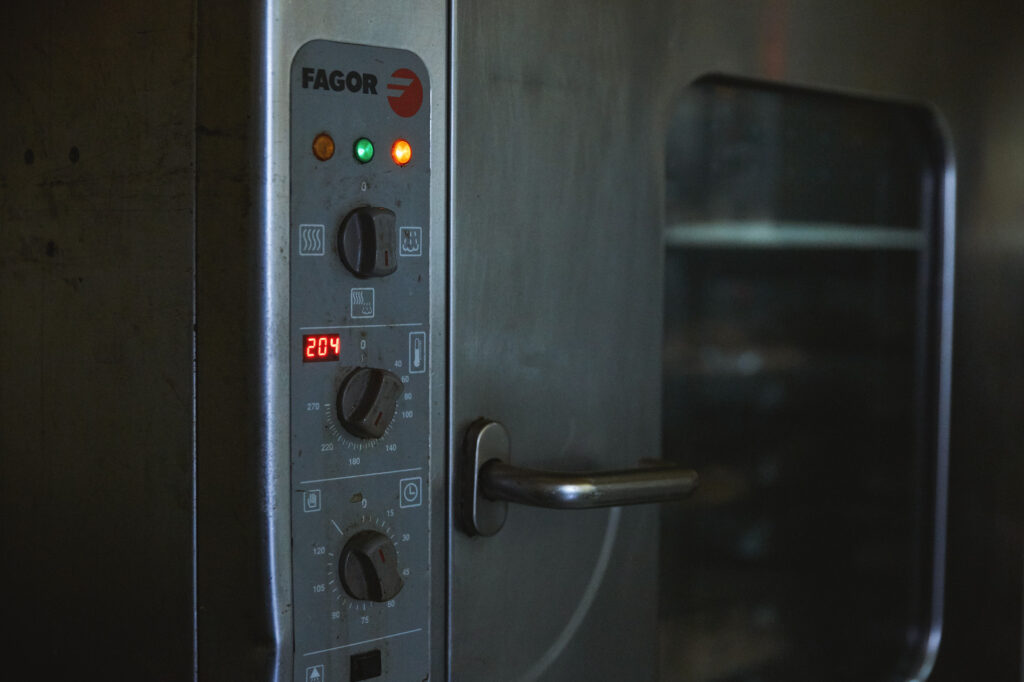 BI Sîngerei helped Svetlana apply for european projects to win seed money for buying bakery equipment
BI Sîngerei helped Svetlana apply for european projects to win seed money for buying bakery equipment BI Sîngerei helped Svetlana apply for european projects to win seed money for buying bakery equipment
BI Sîngerei helped Svetlana apply for european projects to win seed money for buying bakery equipment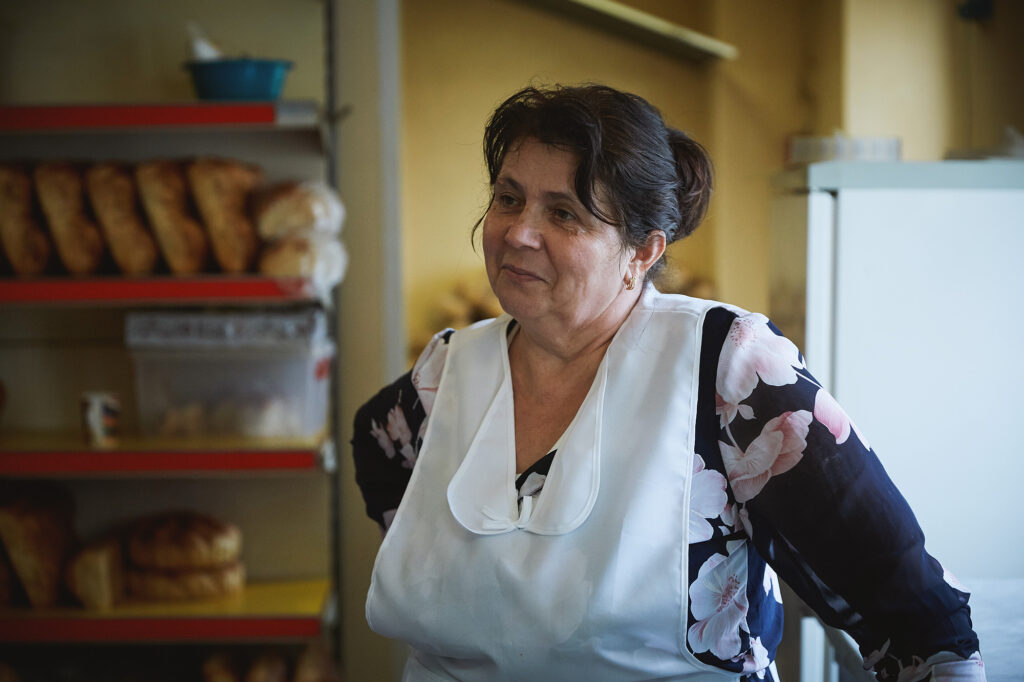 Svetlana Garbuz opened her own baker with the help of the BI Sîngerei
Svetlana Garbuz opened her own baker with the help of the BI Sîngerei
Offering modern dental diagnostic devices – the only of their kind in Sîngerei
With guidance from the incubator and the help of a grant from the EU-supported PARE 1+1 programme, dentist Eduard Meniuc purchased an orthopantomograph, also known as a panoramic radiograph. Eduard’s is the only one of its kind in Sîngerei District. Later, he also bought a device that takes X-rays that focus in on one or two teeth.
“Working as a dentist, I used to send all my patients to Balti [around 25 km from Sîngerei] for further dental investigations, which was a big waste of time,” explains Eduard, who now has two modern dental diagnostic devices – to the benefit of the entire district of Sîngerei.
“The radiation doses emanating from these devices are practically harmless to the human body,” says the dentist.
Eduard says that he has great plans for the future. “I plan on opening a clinic with several dental chairs, where patients can benefit from complex treatments.”
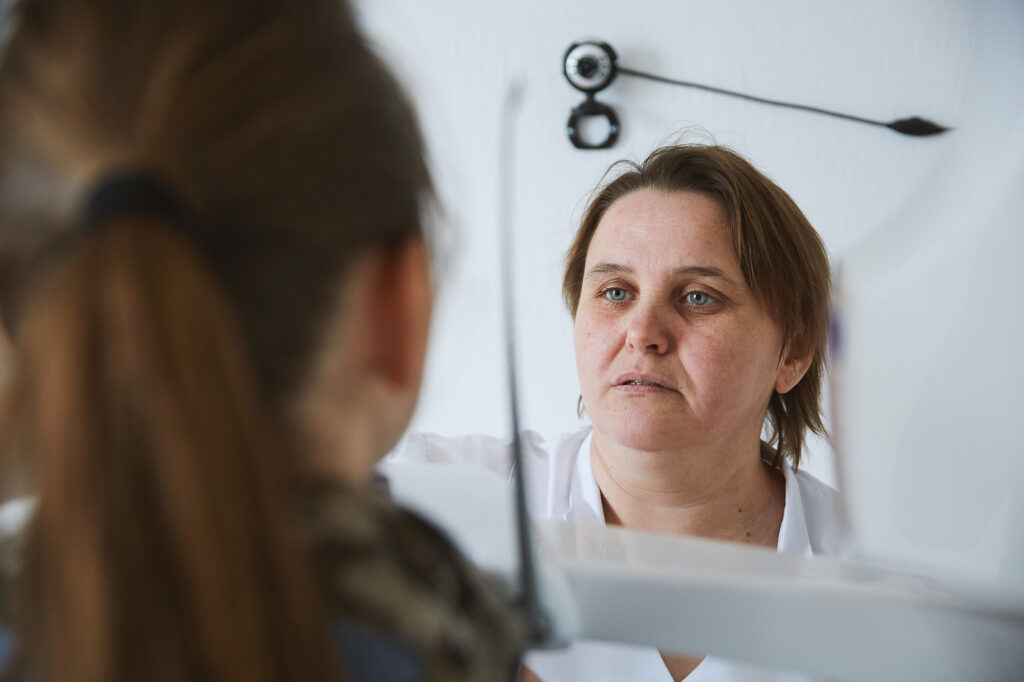 Orthopantomograph, also known as a panoramic radiograph, is being used to perform modern dental diagnostics
Orthopantomograph, also known as a panoramic radiograph, is being used to perform modern dental diagnostics Orthopantomograph, also known as a panoramic radiograph
Orthopantomograph, also known as a panoramic radiograph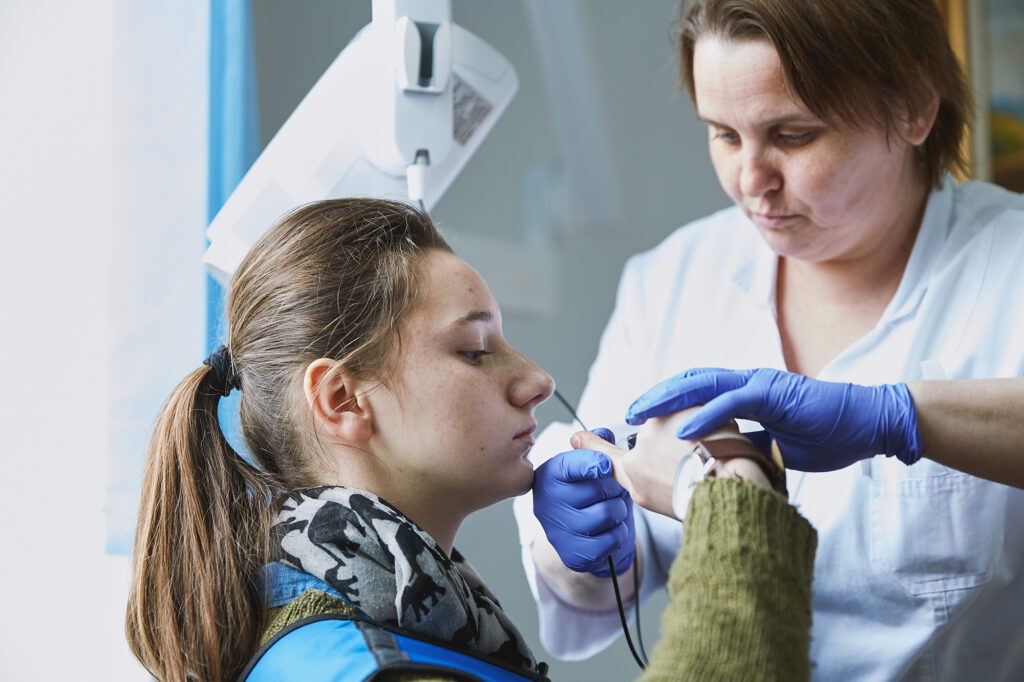 Orthopantomograph, also known as a panoramic radiograph, is being used to perform modern dental diagnostics
Orthopantomograph, also known as a panoramic radiograph, is being used to perform modern dental diagnostics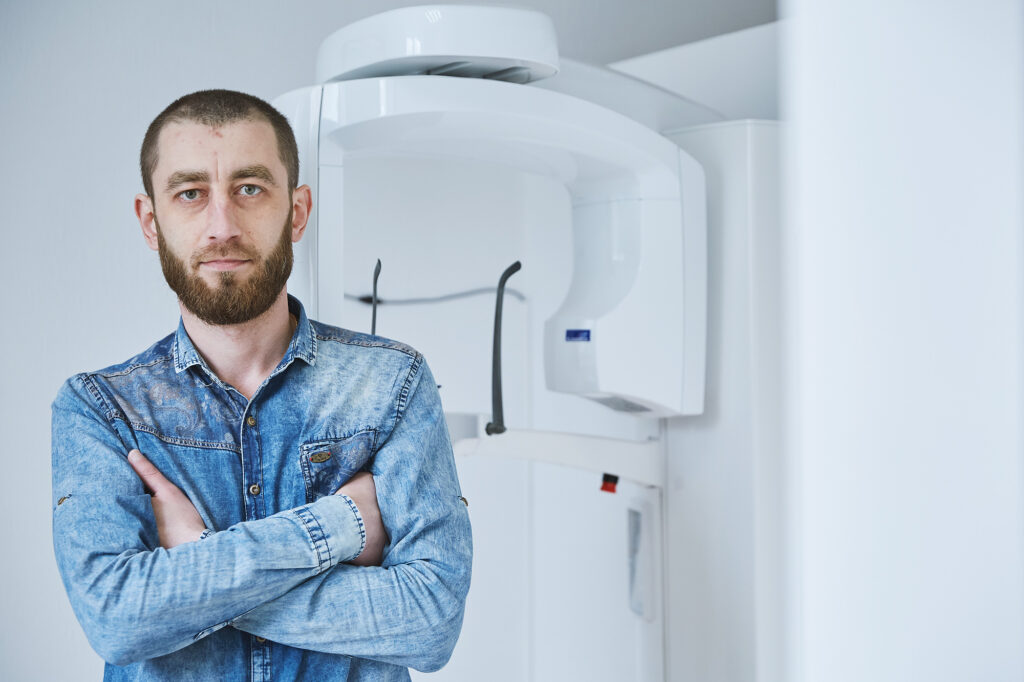 Dentist Eduard Meniuc
Dentist Eduard Meniuc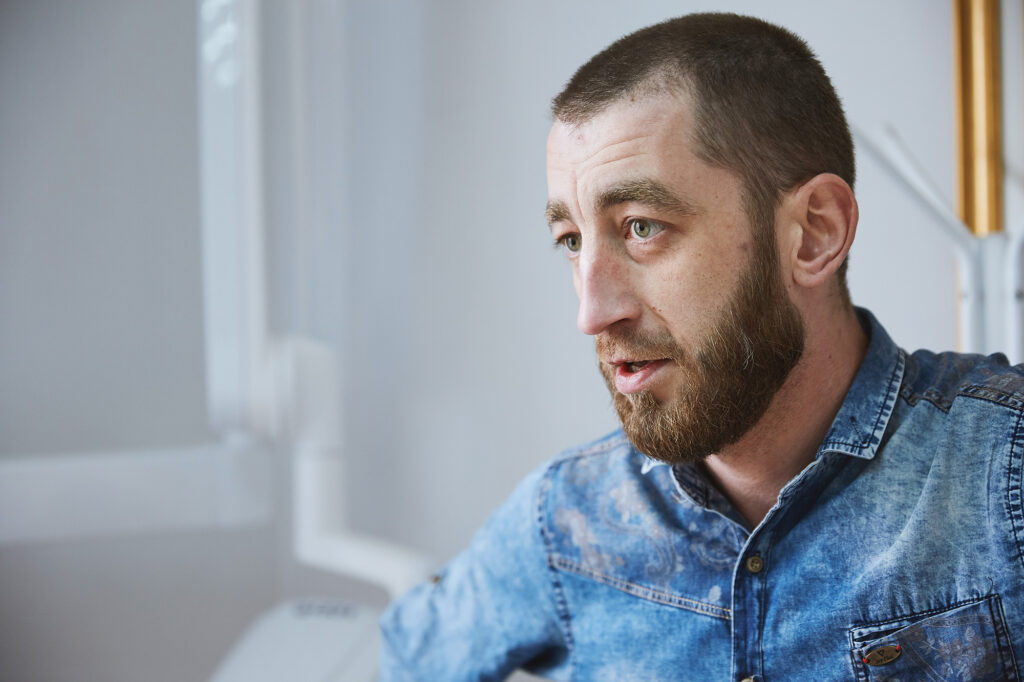 Dentist Eduard Meniuc
Dentist Eduard Meniuc
Combining printing and psychology to help children with psychiatric or speech disorders
Veaceslav Ivanenco has his own specialist printing services company – also the only one of its kind in Sîngerei District.
The printing business has been nicely combined with the business of his wife, Alina Ivanenco, who is also a resident of the BI Sîngerei. With the support of the incubator, Alina opened a private speech therapy and psychological counselling practice.
Alina, who has a master’s degree in clinical psychology, mainly helps children with speech disorders, autism and Down’s syndrome.
“These are quite serious disorders and we are unable to access the materials we need,” explains Alina. Alongside his advertising work, Alina’s husband therefore develops teaching materials for the children in his printing house.
“Recently, we developed software for children with speech disorders, which will be launched soon. It is a game for Android phones which helps children develop their speaking skills,” says Alina.
Alina says she is the only speech and language therapist in Sîngerei District. “Clients come from several areas, including Chisinau. It is a problem not only at national level, but also internationally. There are many children with behavioural disorders. There is [so-called] ‘virtual autism’ caused by gadgets”, says Alina.
The Ivanencos intend to expand their range of services in the printing house by purchasing a laser wood-carving machine to produce eco-friendly toys.
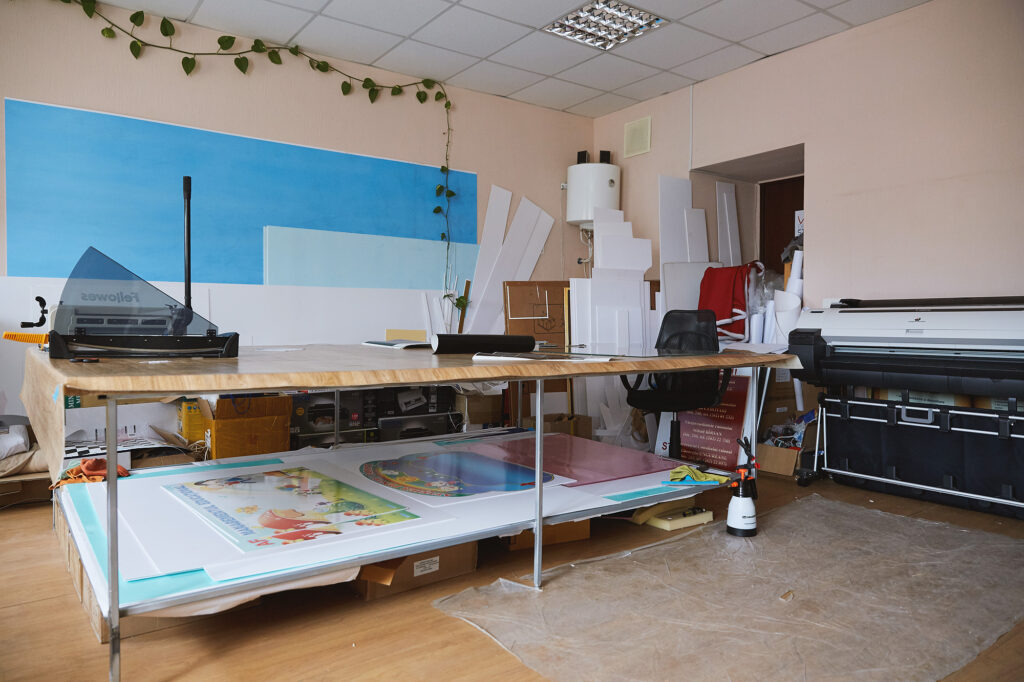 Veaceslav Ivanenco started from a small mini typography, and now offers polygraphic services
Veaceslav Ivanenco started from a small mini typography, and now offers polygraphic services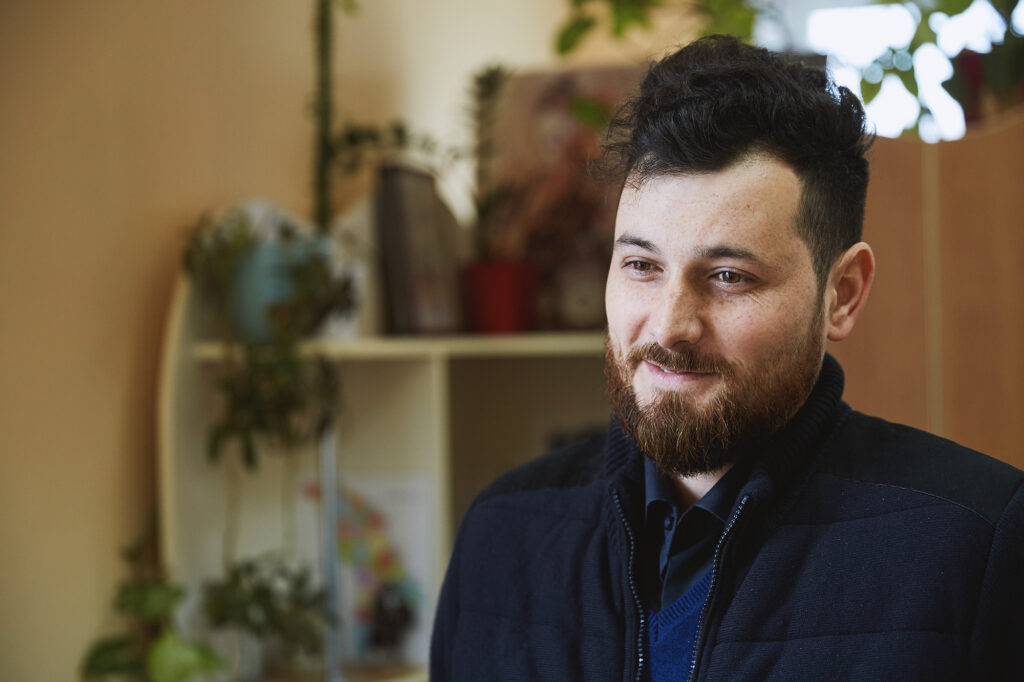 Veaceslav Ivanenco
Veaceslav Ivanenco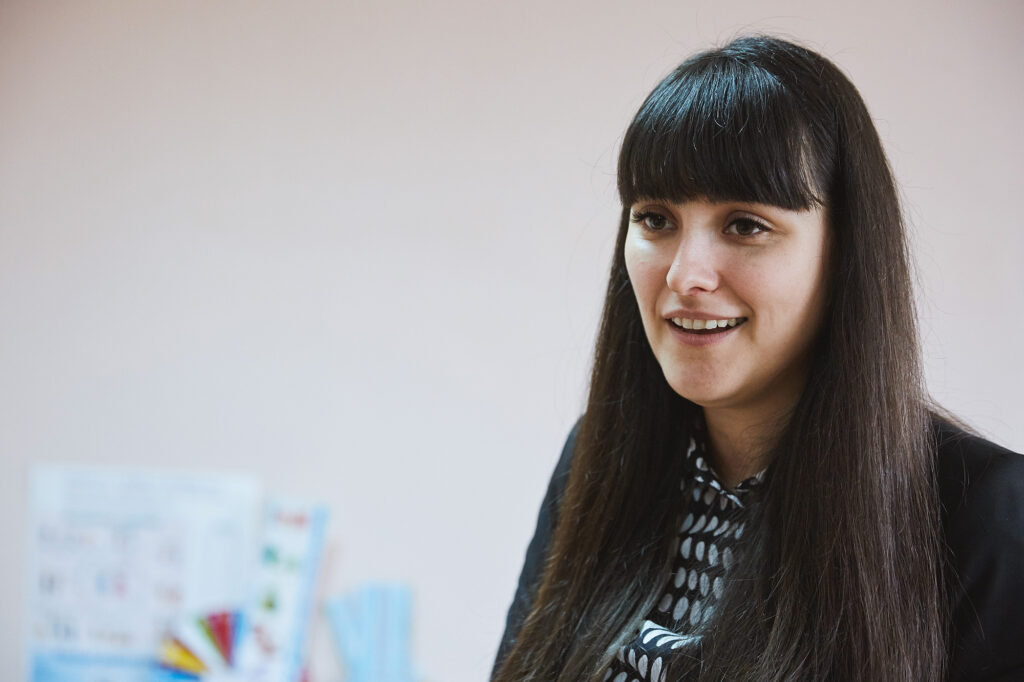 Alina Ivanenco, psychologist and speech therapist, opened her own psycholo gy cabinet
Alina Ivanenco, psychologist and speech therapist, opened her own psycholo gy cabinet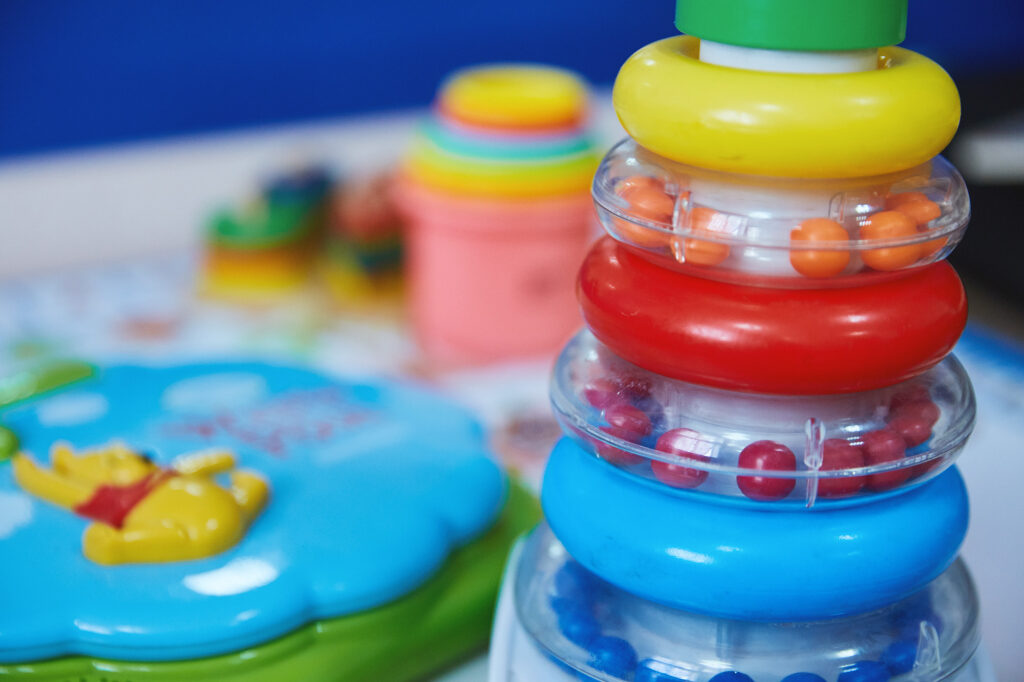 Alina Ivanenco works with kids who have behavioral disorders
Alina Ivanenco works with kids who have behavioral disorders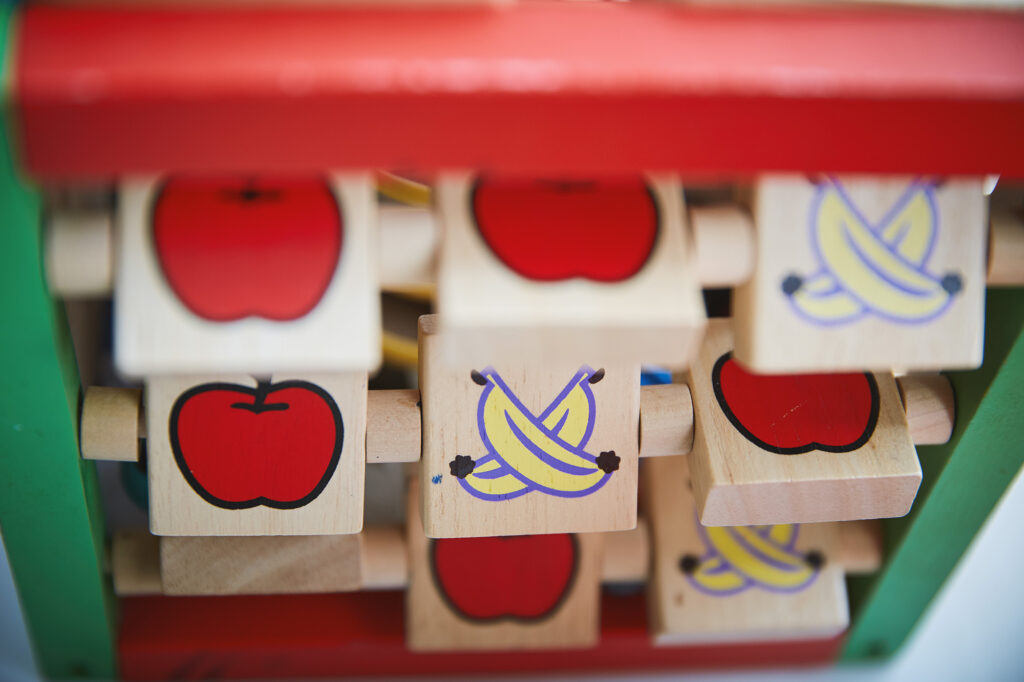 Together with her husband, that own s a typography, Alina also produces teaching materials for kids
Together with her husband, that own s a typography, Alina also produces teaching materials for kids
Producing natural and tasty canned products
Alina Daraban produces melon and watermelon preserves, as well as jams, juices and salads.
Together with her husband and children, she has been growing melons and watermelons for 10 years, canning those that are not consumed or sold.
“We used to can at home, for the family. We treated our relatives, friends and neighbours. They were saying it was tasty and natural, so we got the idea to sell our canned products as well,” explains Alina, who says she does not use chemicals for canning and aims for a product that is as natural as possible.
“At first, I did not know what a business plan, revenue or expenses meant,” says Alina, who, once she came to the incubator, began to take part in a series of trainings that helped her learn what happens behind the scenes in business. Subsequently, being guided by the incubator experts, she also participated in the EU-funded Women in Business project, winning a grant to turn her ideas into reality.
Alina and her family are planning to also dry melon, particularly its seeds, which she says “have many health benefits and retain a lot of vitamins”.
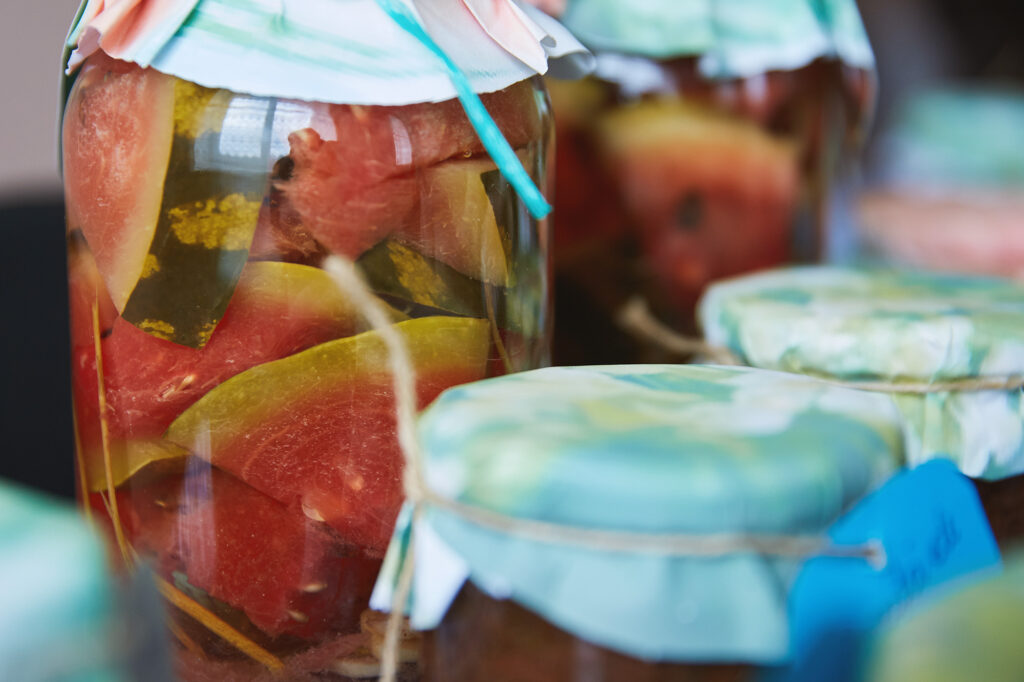 Alina Daraban produces melon and watermelon preserves, as well as jams, juices and salads
Alina Daraban produces melon and watermelon preserves, as well as jams, juices and salads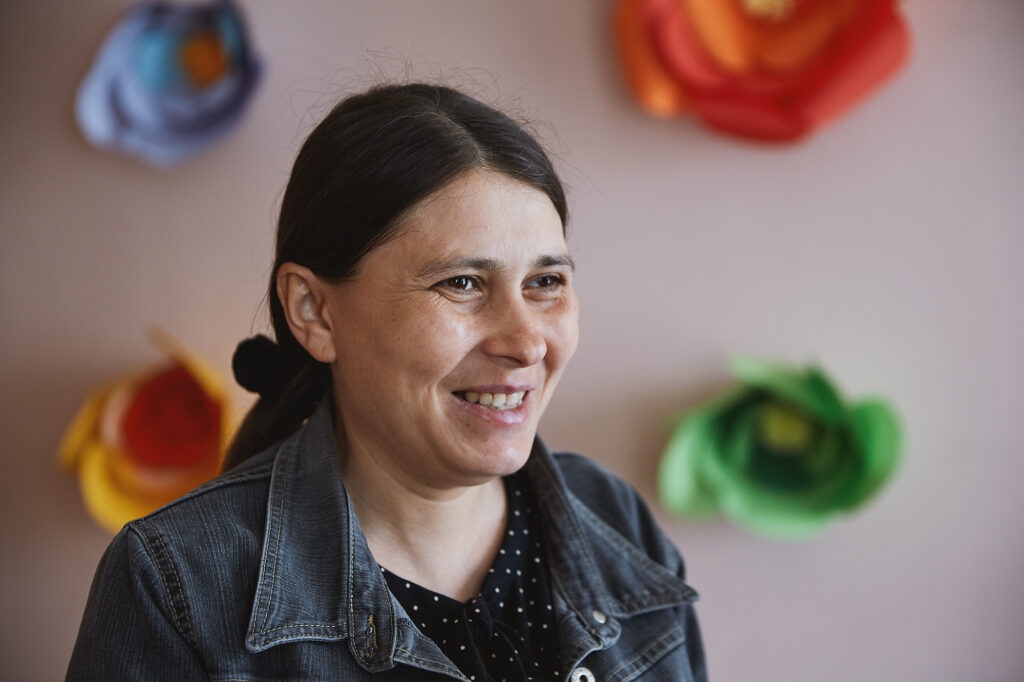 Alina Daraban
Alina Daraban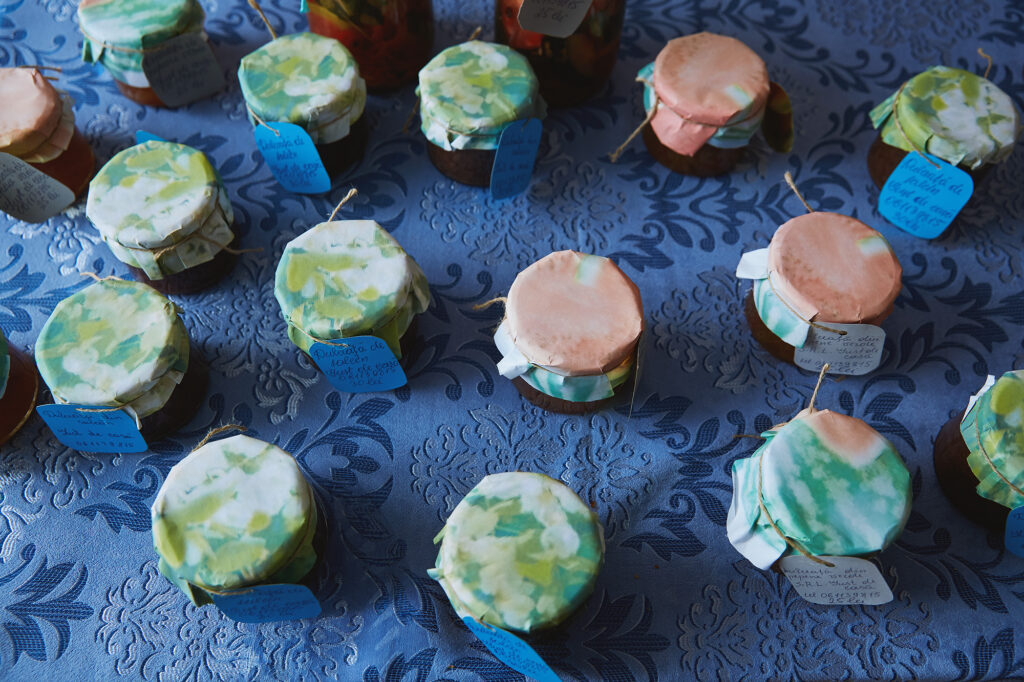 Products by Alina Daraban
Products by Alina Daraban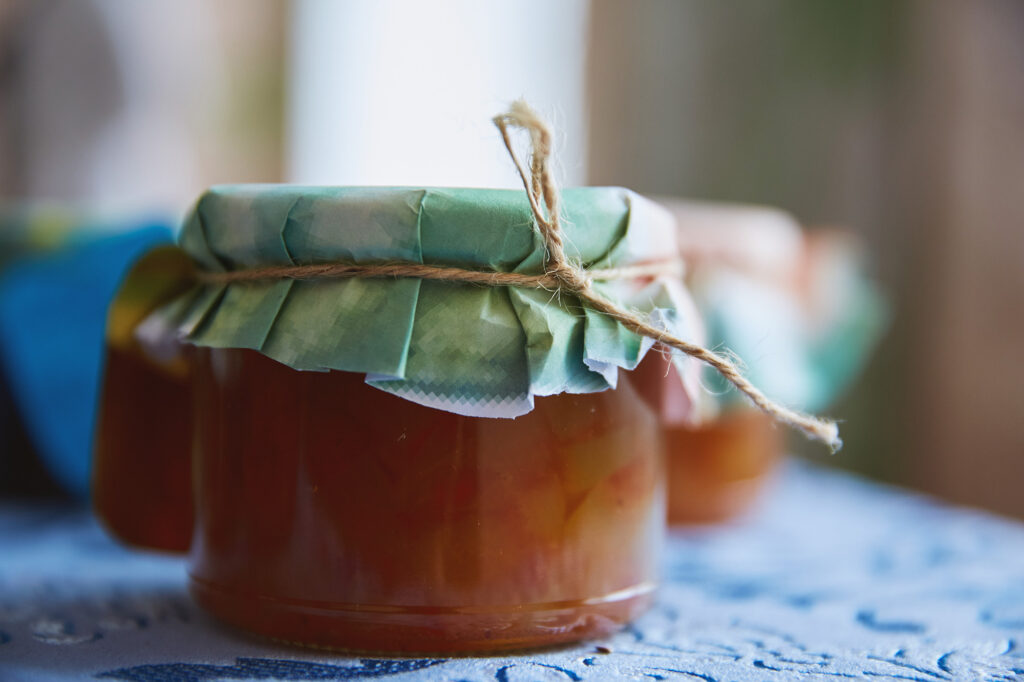 Products by Alina Daraban
Products by Alina Daraban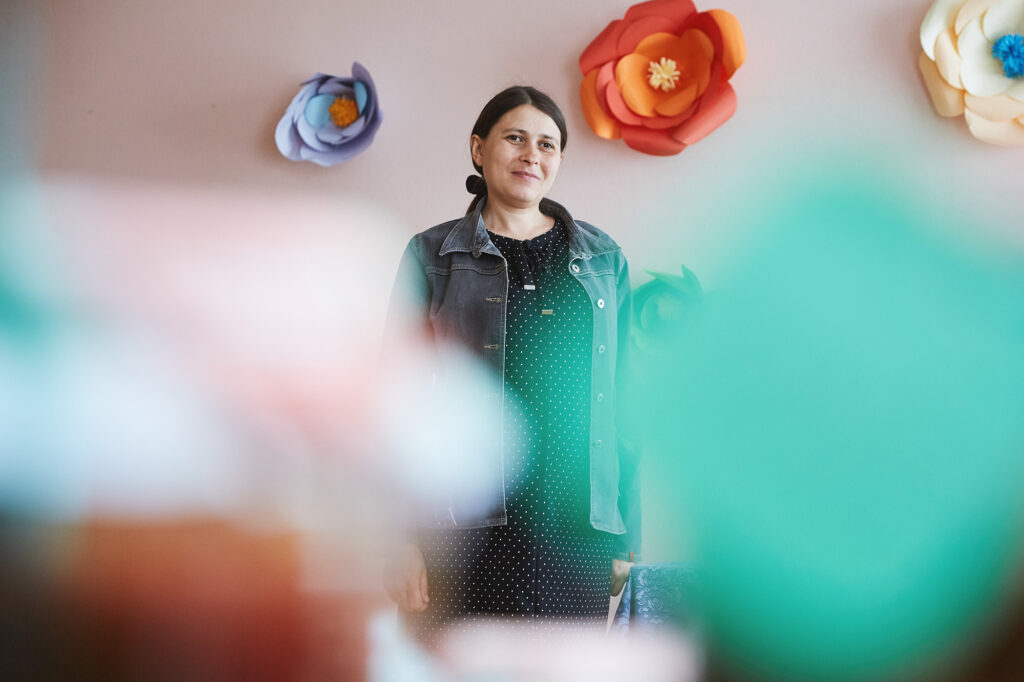 Alina Daraban
Alina Daraban
From a single sewing machine to industrial machinery
Lidia Birsanu’s business grew from a simple clothing repair workshop, which had a single sewing machine at a tailor shop. She makes traditional costumes and dresses, elegant evening dresses, dresses for children and eco-friendly bags.
At the incubator, the entrepreneur participated in various business management training courses, as well as applying for different projects for entrepreneurs, guided by the incubator.
Lidia purchased modern equipment, such as an industrial embroidery machine that allows her to make a larger number of items and meet her increasing demand. She currently has 10 employees and is planning to expand her team with five others.
“We have clients from all the nearby villages; kindergartens and town halls are calling. We have clients from the diaspora as well. I send many traditional shirts to the United States, the Netherlands, Canada and France,” says Lidia.
“We want to grow, to become a much larger factory, to have more workers, to go on the market with our product,” says the entrepreneur about her future plans.
The BI Sîngerei is one of the biggest in the country. Any entrepreneur with a start-up idea can request help there. Depending on their chances of success, they will be offered, over the course of two to three years as a resident of the incubator, favourable conditions to make their concept a reality.
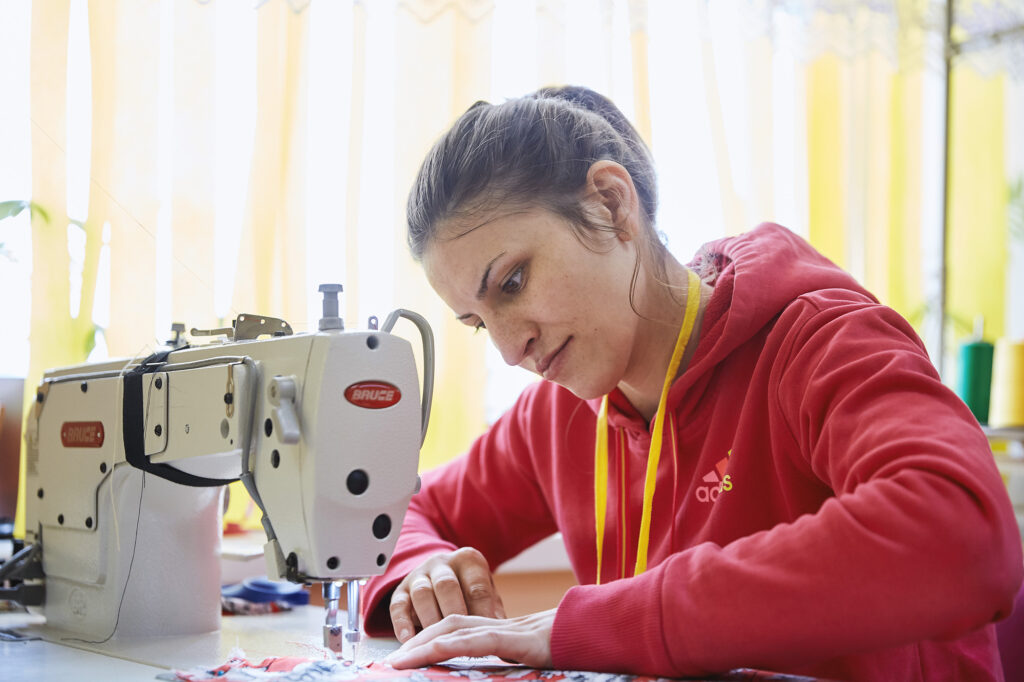 Seamstress, working for Lidia Bîrsanu
Seamstress, working for Lidia Bîrsanu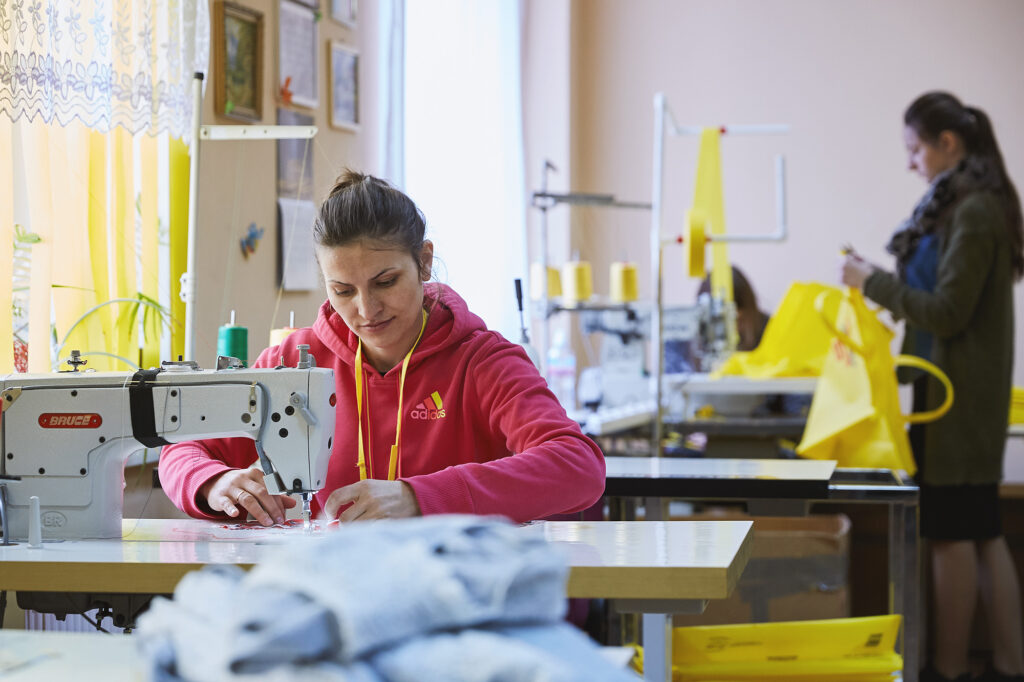 Lidia Birsanu’s business grew from a simple clothing repair workshop
Lidia Birsanu’s business grew from a simple clothing repair workshop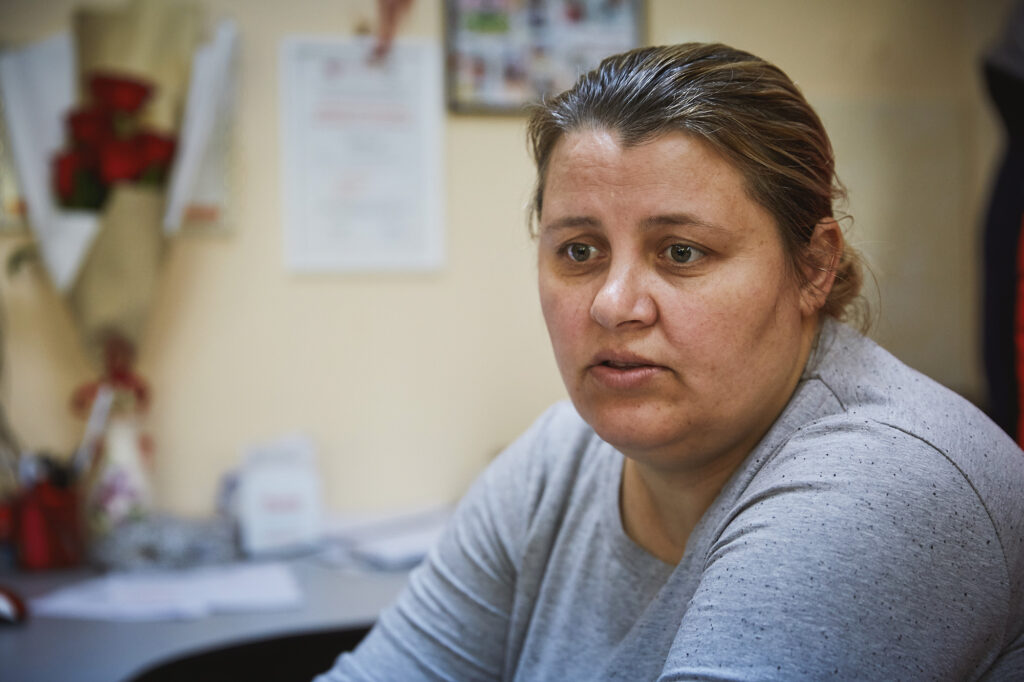 Lidia Birsanu makes traditional costumes and dresses, elegant evening dresses, dresses for children and eco-friendly bags
Lidia Birsanu makes traditional costumes and dresses, elegant evening dresses, dresses for children and eco-friendly bags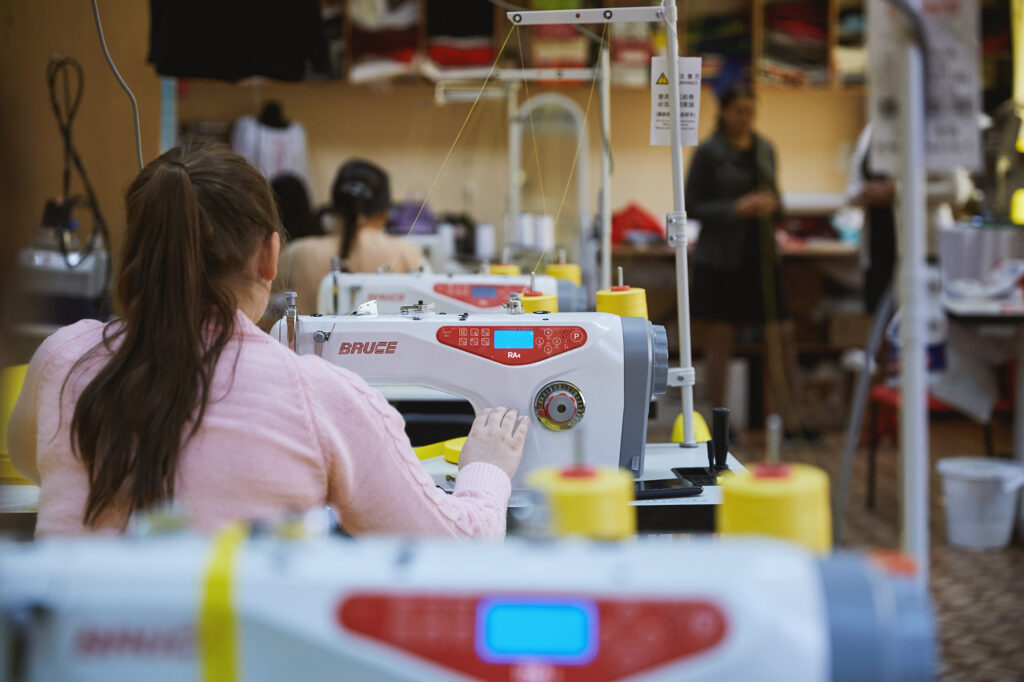 Lidia Birsanu’s tailor shop
Lidia Birsanu’s tailor shop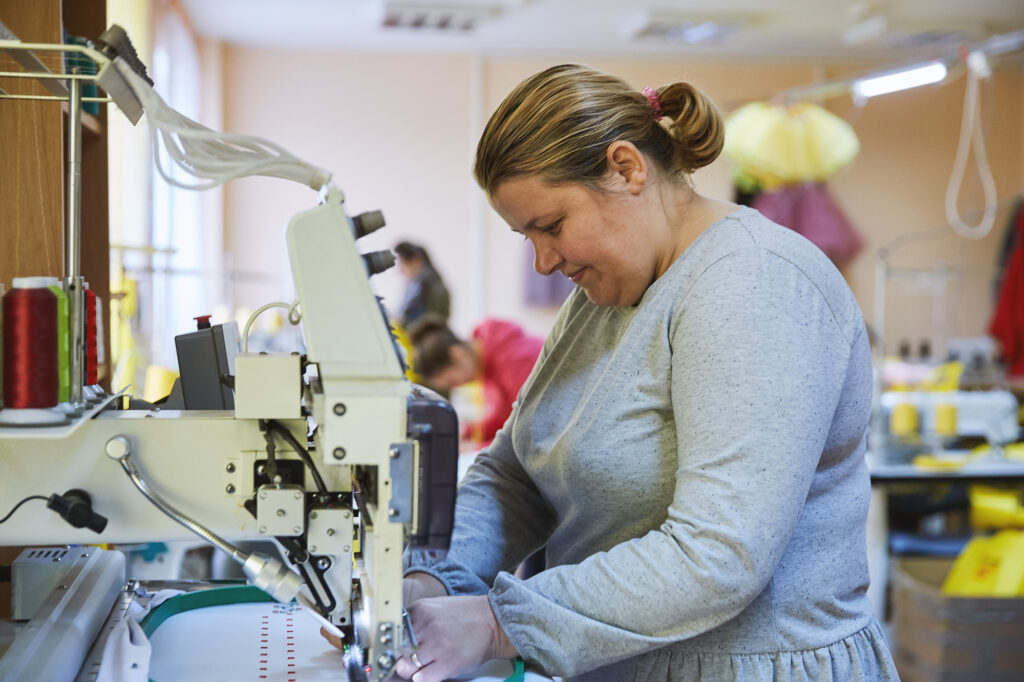 Lidia Bîrsanu, at her modern sewing machine
Lidia Bîrsanu, at her modern sewing machine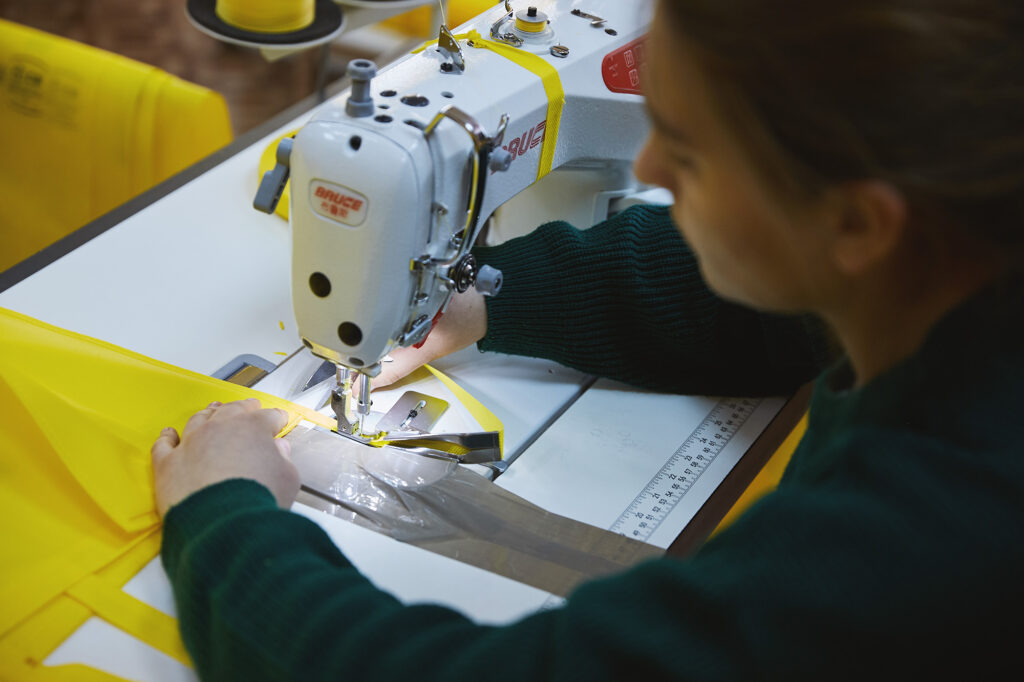 The tailor shop also produces eco bags for companies outside Moldova
The tailor shop also produces eco bags for companies outside Moldova
***
The business incubators network in the Republic of Moldova have been launched by the Moldovan Small and Medium-sized Eenterprise (SME) Sector Development Organisation (ODIMM), with support from the EU-funded Budget Support Programmes “Economic Stimulation of Rural Areas” (ESRA) and “Support to DCFTA”. The EU finances 10 business incubators in the Republic of Moldova, thereby contributing to the support of around 5,000 businesses and the creation of 1,500 jobs. They are located in Ștefan Vodă, Leova, Rezina, Nisporeni, Cahul, Cosnita, Sîngerei, Ceader Lunga, Cimislia and Calarasi. The purpose of these incubators is to encourage innovation by promoting start-ups and small-scale investment, which in turn creates employment opportunities for citizens from different regions of the country.
Author: Adriana Vlas
Article published in Romanian by UNIMEDIA.info.
MOST READ
SEE ALSO

No, time is not on Russia‘s side

How to open an art business in Moldova: the experience of Alexandra Mihalaș

Be one step ahead of a hacker: check simple cybersecurity tips!
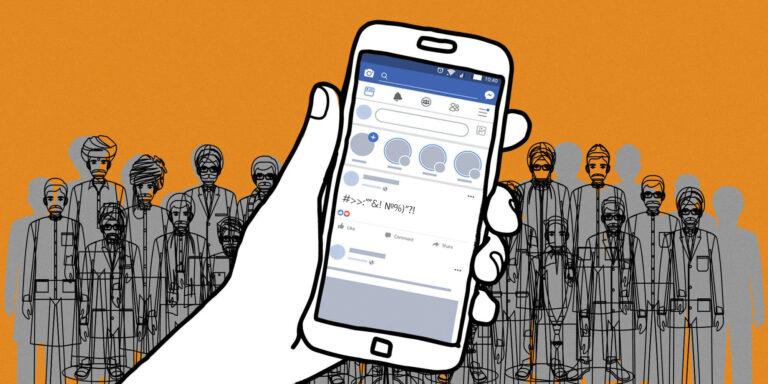
How to act and move on: strategies for women facing discrimination and online harassment
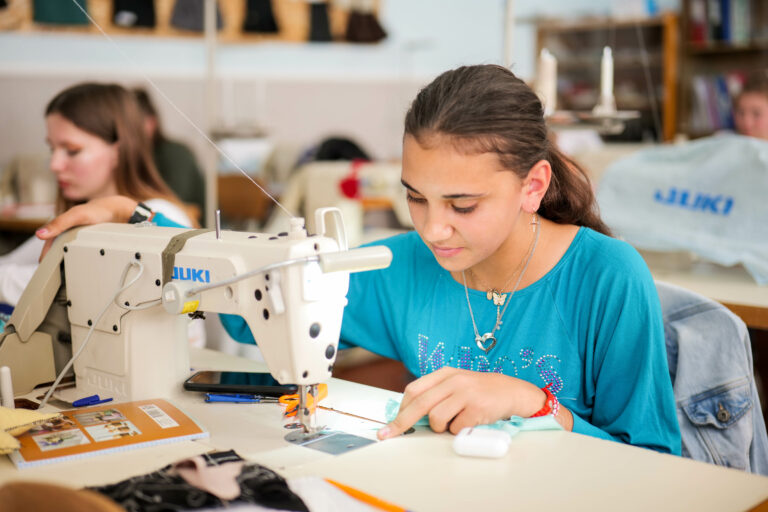
‘Learning is not a process but a journey’: the example of a school in Orhei
More campaign pages:
Interested in the latest news and opportunities?
This website is managed by the EU-funded Regional Communication Programme for the Eastern Neighbourhood ('EU NEIGHBOURS east’), which complements and supports the communication of the Delegations of the European Union in the Eastern partner countries, and works under the guidance of the European Commission’s Directorate-General for Neighbourhood Policy and Enlargement Negotiations, and the European External Action Service. EU NEIGHBOURS east is implemented by a GOPA PACE-led consortium. It is part of the larger Neighbourhood Communication Programme (2020-2024) for the EU's Eastern and Southern Neighbourhood, which also includes 'EU NEIGHBOURS south’ project that runs the EU Neighbours portal.

The information on this site is subject to a Disclaimer and Protection of personal data. © European Union,







